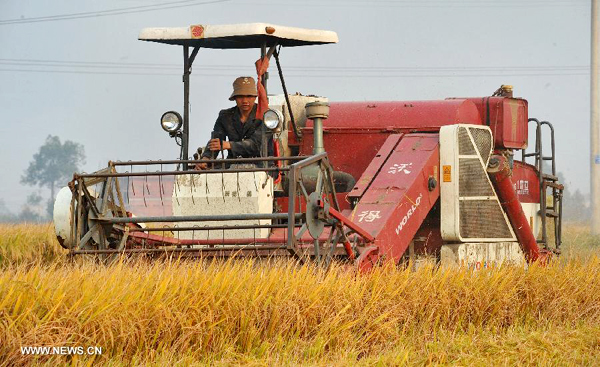
 |
|
[Photo/Xinhua] |
Soybeans. It is not just vegetarians who eat them. The humble legumes are used to make tofu, cooking oil and animal feed.
They are also a daily necessity for most Chinese.
But large numbers of the country's farmers are abandoning the crop, squeezed out by cheap foreign imports.
In China, up to 80 percent of soybeans are now imported from countries including the United States, Brazil and Argentina.
Most of these are genetically modified.
Costing far less than domestically grown crops, and of greater quality, the GM variety is rendering non-GM Chinese soybeans unviable.
Liaoning province is in the country's soybean basin. And it is here the impacts of GM imports are being felt.
Veteran farmer Liu Shumin has been planting soybeans for 30 years. Despite standing in his fields, which are ripe and ready for harvest, he is not a happy man.
With all his agricultural know-how, he still cannot compete with cheap GM imports.
"The beans yield 2,250 kilograms per hectare, but the price is only 4 yuan per kilogram. I do not know how the price will be after harvest, but it will not increase a lot," said Liu.
Liu also added that because the soybean seeds they bought are low quality, plus farmers are using the old planting way, so the yield is low.
"Therefore, few people would like to plant soybeans in this area." Said Liu, he's frustration evident.
Despite low selling prices for farmers, domestically grown soybeans still cannot compete with cheaper imported GM products.
Song Shuhong, researcher with Liaoning's Academy of Agricultural Science, said enterprises that process domestic soybeans, whether for oil extraction or soy foods, have to suffer high costs.